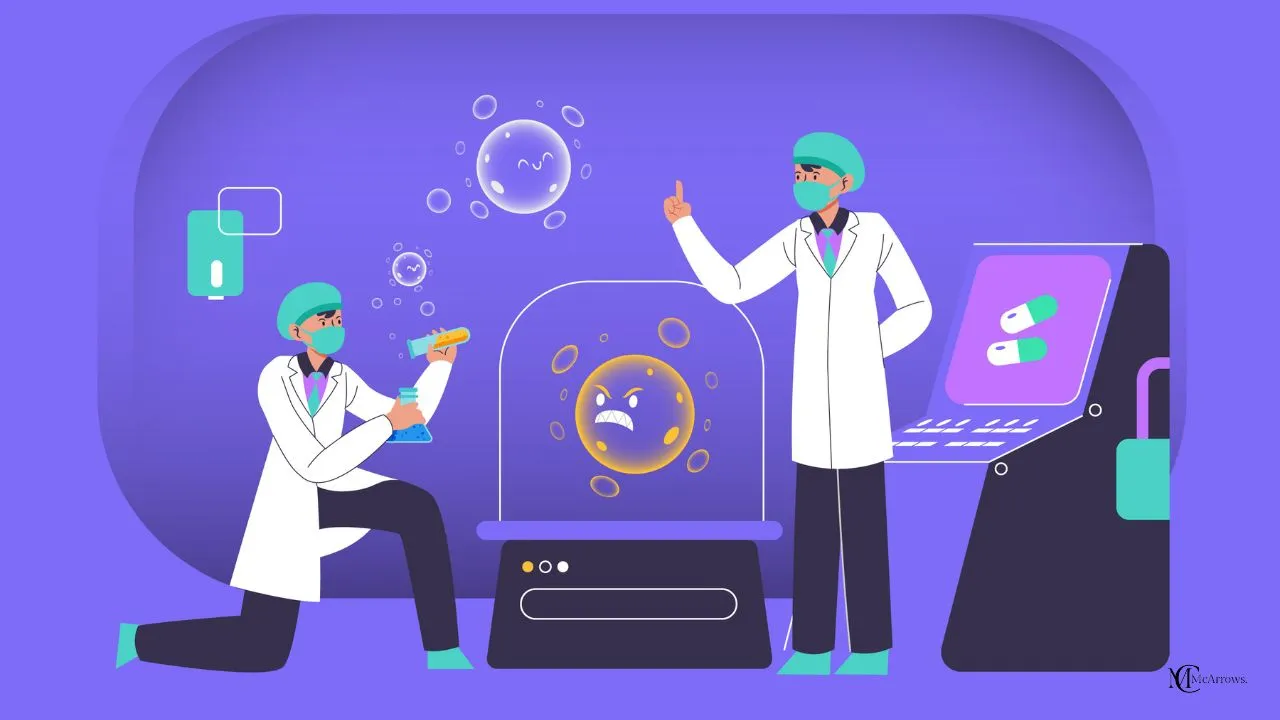The healthcare industry is currently undergoing a profound transformation, driven by the rapid advancements in custom software development. As technology becomes increasingly integrated into healthcare systems, organizations are recognizing the significant impact that tailored software solutions can have on enhancing patient care, improving operational efficiency, and driving innovation. This article explores how custom software development is reshaping the healthcare landscape, highlighting key benefits, applications, and trends that are driving this digital revolution.
Table of Contents
The Role of Custom Software Development in Healthcare
Custom software development refers to the process of designing, creating, and deploying software solutions that are specifically tailored to meet the unique needs and requirements of a particular organization or industry. In the context of healthcare, custom software development is playing a pivotal role in addressing the complex challenges faced by healthcare providers, administrators, and patients alike. By leveraging custom solutions, healthcare organizations can achieve a higher level of precision, efficiency, and innovation, ultimately improving patient outcomes and operational performance.
Key Benefits of Custom Software Development in Healthcare
1. Enhanced Patient Care and Experience
Custom software solutions are designed with a focus on improving patient care and enhancing the overall patient experience. Through personalized health management platforms, telemedicine applications, and patient portals, healthcare providers can offer more convenient and accessible services to their patients. These solutions enable patients to schedule appointments, access medical records, and communicate with healthcare professionals, all from the comfort of their homes. As a result, patient engagement and satisfaction are significantly improved.
2. Streamlined Operations and Workflow
One of the major advantages of custom software development is its ability to streamline healthcare operations and optimize workflow processes. Custom solutions can automate administrative tasks, such as appointment scheduling, billing, and inventory management, reducing the burden on healthcare staff and minimizing the risk of human error. By automating routine tasks, healthcare professionals can focus more on delivering quality care to patients, leading to improved efficiency and productivity.
3. Data Integration and Interoperability
Custom software development facilitates seamless data integration and interoperability among different healthcare systems and platforms. This integration enables healthcare providers to access comprehensive and up-to-date patient information, regardless of where the data is stored. With a unified view of patient data, clinicians can make more informed decisions, improve care coordination, and enhance the accuracy of diagnoses and treatment plans. Additionally, data interoperability supports population health management initiatives by providing valuable insights into patient trends and outcomes.
4. Improved Data Security and Compliance
Data security and compliance are paramount in the healthcare industry, where sensitive patient information is at stake. Custom software solutions are developed with robust security features and encryption protocols to protect patient data from unauthorized access and breaches. Furthermore, these solutions are designed to comply with industry regulations and standards, such as the Health Insurance Portability and Accountability Act (HIPAA) in the United States, ensuring that healthcare organizations remain compliant and avoid costly penalties.
5. Personalized Treatment and Precision Medicine
Custom software development enables the implementation of personalized treatment plans and precision medicine approaches. By analyzing patient data and leveraging advanced algorithms, custom solutions can identify patterns and predict treatment outcomes based on individual patient characteristics. This personalized approach allows healthcare providers to tailor treatment plans to each patient’s unique needs, resulting in more effective therapies and better patient outcomes.
6. Cost Efficiency and Resource Optimization
Custom software development offers healthcare organizations the opportunity to optimize their resources and reduce operational costs. By automating manual processes, reducing paperwork, and minimizing redundant tasks, custom solutions contribute to significant cost savings. Additionally, custom software can help healthcare providers optimize resource allocation, ensuring that the right resources are available when and where they are needed most.
Applications of Custom Software Development in Healthcare
1. Electronic Health Records (EHR) Systems
Custom EHR systems are at the forefront of healthcare transformation, enabling healthcare providers to digitize and centralize patient records. These systems offer comprehensive features, including patient history, test results, treatment plans, and billing information, all accessible through a secure platform. Custom EHR solutions can be tailored to meet the specific needs of healthcare organizations, providing intuitive interfaces and workflows that enhance user experience and data accuracy.
2. Telemedicine Platforms
Telemedicine has emerged as a game-changer in healthcare delivery, and custom telemedicine platforms are driving this revolution. These platforms enable virtual consultations, remote monitoring, and secure communication between patients and healthcare providers. Custom telemedicine solutions can be designed to integrate with existing systems, ensuring seamless data exchange and enabling healthcare organizations to expand their reach to remote and underserved populations.
3. Health Monitoring and Wearable Devices
Custom software development has paved the way for the integration of health monitoring and wearable devices into healthcare systems. These devices collect real-time data on vital signs, physical activity, and other health metrics, allowing healthcare providers to monitor patients’ conditions continuously. Custom solutions analyze this data to provide actionable insights, enabling early detection of health issues and proactive interventions.
4. Patient Engagement and Portal Solutions
Patient engagement is a critical component of modern healthcare, and custom patient portal solutions are designed to enhance this engagement. These portals empower patients to take an active role in their healthcare journey by providing access to medical records, appointment scheduling, medication reminders, and educational resources. Custom solutions can be personalized to match the branding and unique features of healthcare organizations, fostering a stronger connection between patients and providers.
5. Clinical Decision Support Systems (CDSS)
Clinical decision support systems leverage custom software development to provide healthcare professionals with data-driven insights and recommendations. These systems analyze patient data, clinical guidelines, and research findings to assist clinicians in making informed decisions regarding diagnoses, treatment plans, and medication management. Custom CDSS solutions can be integrated into existing workflows, enhancing clinical efficiency and accuracy.
6. Healthcare Analytics and Business Intelligence
Custom software solutions in healthcare analytics and business intelligence enable organizations to harness the power of data for strategic decision-making. These solutions aggregate and analyze data from various sources, providing valuable insights into patient trends, resource utilization, financial performance, and operational efficiency. By leveraging custom analytics solutions, healthcare organizations can identify opportunities for improvement, optimize resource allocation, and enhance patient care delivery.
Trends in Custom Software Development for Healthcare
1. Artificial Intelligence and Machine Learning
Artificial intelligence and machine learning are driving significant advancements in custom software development for healthcare. AI-powered solutions are being used to automate tasks, analyze complex data, and predict patient outcomes. Machine learning algorithms can identify patterns in medical images, detect anomalies, and assist in early diagnosis. The integration of AI and ML into custom software solutions is revolutionizing clinical decision-making and improving patient care.
2. Blockchain Technology
Blockchain technology is gaining traction in healthcare for its ability to secure and streamline data sharing. Custom software solutions leveraging blockchain ensure data integrity, transparency, and traceability, reducing the risk of fraud and data breaches. Blockchain can be used to create decentralized health records, facilitate secure data exchange, and enhance the security of supply chains in the pharmaceutical industry.
3. Internet of Things (IoT) Integration
The Internet of Things (IoT) is transforming healthcare by connecting medical devices and equipment to the internet, enabling real-time monitoring and data exchange. Custom software solutions are being developed to integrate IoT devices into healthcare systems, allowing for continuous patient monitoring and proactive interventions. IoT integration enhances patient safety, improves treatment outcomes, and reduces hospital readmissions.
4. Cloud-Based Solutions
Cloud-based solutions are becoming increasingly popular in healthcare due to their scalability, flexibility, and cost-effectiveness. Custom software development leverages cloud technology to create solutions that can be accessed from anywhere, enabling healthcare providers to collaborate, share information, and deliver care remotely. Cloud-based solutions also facilitate data storage, backup, and disaster recovery, ensuring business continuity and data security.
5. Personalized Medicine and Genomics
The rise of personalized medicine and genomics is driving the development of custom software solutions that analyze genetic data and tailor treatment plans to individual patients. Custom solutions leverage advanced algorithms to identify genetic markers, predict disease risks, and recommend personalized therapies. This approach enhances treatment efficacy, reduces adverse effects, and improves patient outcomes.
6. Mobile Health (mHealth) Applications
Mobile health applications are transforming how patients access healthcare services and manage their health. Custom mHealth solutions provide patients with easy access to medical information, appointment scheduling, medication reminders, and telehealth services. These applications empower patients to take control of their health and make informed decisions, leading to better health outcomes.
Challenges and Considerations in Custom Software Development for Healthcare
While custom software development offers numerous benefits to the healthcare industry, it also presents challenges that organizations must address:
1. Regulatory Compliance
Healthcare organizations must ensure that custom software solutions comply with industry regulations and standards, such as HIPAA, GDPR, and HL7. Compliance is critical to safeguarding patient data and avoiding legal repercussions.
2. Data Privacy and Security
Protecting patient data from breaches and unauthorized access is paramount in healthcare. Custom software development must incorporate robust security measures, encryption protocols, and access controls to ensure data privacy and security.
3. Interoperability and Integration
Seamless integration with existing systems and interoperability among different healthcare platforms is essential for effective data exchange. Custom solutions must be designed to integrate with diverse systems, enabling smooth communication and collaboration.
4. User Adoption and Training
The successful implementation of custom software solutions requires user adoption and training. Healthcare organizations must invest in training programs to familiarize staff with new technologies and ensure a smooth transition.
5. Cost and Resource Allocation
Developing custom software solutions can be resource-intensive and costly. Healthcare organizations must carefully assess the cost-benefit ratio and allocate resources effectively to achieve sustainable adoption.
6. Technological Advancements
The rapid pace of technological advancements requires healthcare organizations to stay updated with the latest trends and innovations. Continuous monitoring and adaptation are necessary to remain competitive and leverage new opportunities.
Conclusion
Custom software development is playing a transformative role in the healthcare industry, offering innovative solutions that enhance patient care, streamline operations, and drive efficiency. By leveraging custom software solutions, healthcare organizations can improve patient outcomes, optimize resources, and stay ahead in a rapidly evolving digital landscape. However, it is essential to address challenges related to compliance, security, and integration to fully realize the potential of custom software development in healthcare.
As the healthcare industry continues to embrace digital transformation, custom software development will remain a key driver of innovation and progress. By adopting tailored solutions that meet their unique needs, healthcare organizations can position themselves at the forefront of the industry and deliver exceptional care to patients.

CEO, McArrows
Leverages over seven years in tech to propel the company forward. An alumnus of Purdue and Amity, his expertise spans IT, healthcare, aviation, and more. Skilled in leading iOS and backend development teams, he drives McArrows’ technological advancements across diverse industries.








